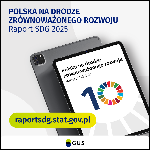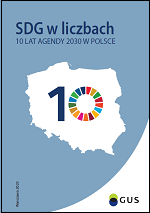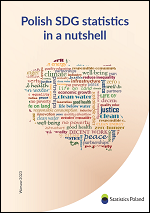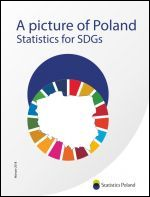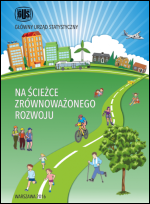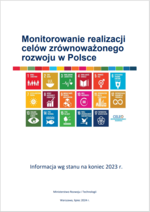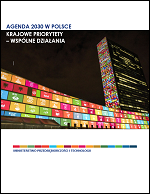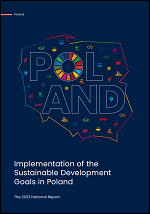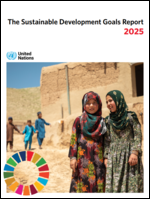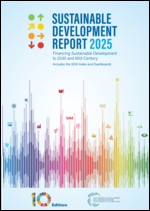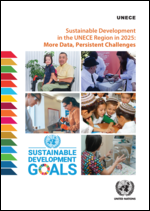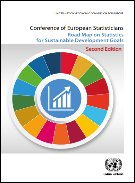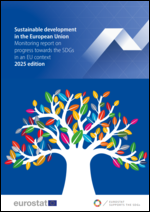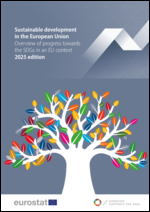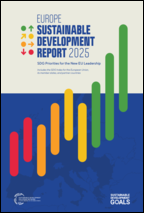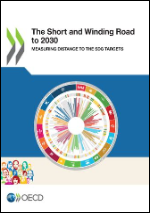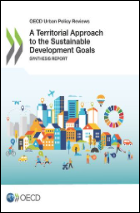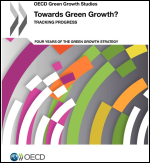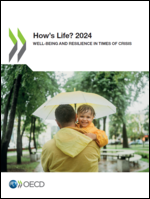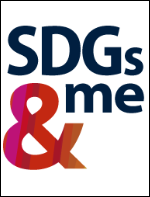ON THE 2030 AGENDA AND SDGs (SUSTAINABLE DEVELOPMENT GOALS)
The 2030 Agenda for Sustainable Development, adopted in September 2015, is a comprehensive plan of action for the world in a 2030 perspective, established by UN via negotiations amongst its member states. The adoption of the 2030 Agenda is an unprecedented event in the history of mankind. All 193 UN member states committed themselves to working for the realisation of 17 Sustainable Development Goals – SDGs. The Goals are focused on ensuring decent lives, peace and economic progress for all people in the world while taking care of the natural environment and combating climate change.
The 2030 Agenda is focused on five areas of critical importance for humanity and the planet (so-called 5Ps):
People are at the centre of the 2030 Agenda. Eradication of poverty and hunger amongst them, fulfilment of their individual potential in dignity and equality as well as life in healthy environment are major challenges and prerequisites of sustainable development.
Planet should serve the needs of present and future generations. The rational use of natural resources, sustainable consumption and production, inclusive economic growth as well as climate action will help protect the planet from degradation and ensure intra- and intergenerational solidarity.
Prosperity should be provided to everyone through common improvement of life quality. Universal access to quality education, medical service as well as infrastructure in connection with environment-friendly economic and technological progress will enable the enjoyment of prosperous and fulfilling life.
Peace remains on guard of the 2030 Agenda realisation. The achievement of the Goals is possible only in societies free from violence and fear, based on tolerance and inclusion.
Partnership entails the necessity of mobilization of many environments. Global cooperation among all the countries, co-action of the government, business and civil society, in the spirit of solidarity with the poorest and most vulnerable, will enable the realisation of the ambitious vision of the 2030 Agenda.
SDG in EU & OECD
EU’s engagement with sustainable development
The concept of sustainable development was present in the European Union long before the adoption of the 2030 Agenda. Sustainable development was acknowledged as EU’s principle of operation in the Treaty on European Union, whereas the detailed course of action for sustainable development in EU was outlined for the first time in the EU Sustainable Development Strategy (EU SDS), adopted in 2001 and revised in 2006. The EU SDS goals were monitored by a relevant set of sustainable development indicators (SDIs).
Joining the global initiative of the 2030 Agenda, the European Commission issued the communication "Next steps for a sustainable European future. European action for sustainability" in 2016. The document declared integration of SDGs into EU policy framework and regular reporting of progress towards SDGs. The global goals of the 2030 Agenda were mainstreamed into i.a. Europe 2020 Strategy, 10 Priorities of the European Commission and Circular Economy Package in force at that time. Currently, EU holistic approach to SDGs is reflected in i.a. 6 Commission Priorities for 2019-2024, directly referring to 17 Sustainable Development Goals. However, SDGs figure most prominently in the 1st Commission Priority, namely, the European Green Deal (communicated by EC in December, 2019), which is EU’s new development strategy aimed at transforming the EU into a modern, resource-efficient and climate neutral economy, where no person or region is left behind.
In the EU, SDG monitoring is carried out by means of a set of about 100 sustainable development indicators (SDIs). The EU set differs from the global one as it is strongly interlinked with EU policies, which are relevant to the development status and potential of Member States and challenges facing them. The EU SDIs rely heavily on the information resources of the European Statistical System. They are used i.a. for Eurostat’s annual monitoring reports on progress towards the SDGs in an EU context and country reports as part of the European Semester procedure for coordinating socio-economic and budgetary policy in the EU.
OECD’s engagement with sustainable development
The Organization for Economic Co-operation and Development (OECD) also takes an active part in sustainable development initiatives. In 2016, the Organization adopted "An OECD Action Plan on the Sustainable Development Goals ", identifying four main areas for OECD activities. One of them is supporting OECD countries in reviewing their policies in terms of SDGs and mapping them with SDGs. Conclusions from these reviews are presented in an OECD series Better Policies, including, among others, a publication on Poland ("The 2030 Sustainable Development Agenda. Towards a Successful Implementation by Poland").
In addition, the OECD supports countries in mainstreaming SDGs into their policies in order to ensure better coherence with the 2030 Agenda and, as a result, coordination in SDG implementation. With that aim, the Organization prepared OECD Recommendation on Policy Coherence for Sustainable Development (PCSD) based on three main pillars (a strategic vision for enhancing policy cohesion, effective governance and evaluation of actions) and eight specific principles for adjusting national priorities to the 2030 Agenda.
Another SDG activity, resulting from "An OECD Action Plan...", refers to SDG distance assessment in OECD countries. Every few years, under the initiative Measuring Distance to the SDG Targets, the OECD publishes reports presenting detachment of OECD countries from the full realization of the targets and goals, based on UN and OECD data.
Apart from that, OECD provides specialized tools for tracking progress towards the SDGs:
• SDG monitoring framework for OECD regions and cities (Measuring the distance to the SDGs in regions and cities),
• instrument for measuring financial support for SDGs (SDG Financing Lab),
• browser for connections between policies, challenges and SDGs (SDG Pathfinder).
The remaining OECD activities related to sustainable development include i.a.:
• Better Life Initiative – OECD’s project promoting better policies in line with the phrase "Better policies for better lives." The initiative engages the political world into actions aimed at fostering well-being, and enhances social engagement. Development of Better Life Index, enabling a comprehensive view of societal well-being issue, was part of the project. Results of the latest research on life quality are presented in successive editions of the thematic publication „How’s life? Measuring Well-being."
• Green growth and sustainable development – actions towards policy enhancement for economic growth, while preserving natural environment assets and developing environment-friendly infrastructure. OECD’s activity in the area of green growth is based on the Green Growth Strategy, adopted in 2011. Progress made by individual countries in implementing economic and environmental priorities, outlined in the Strategy, is presented in the successive editions of the publication „Towards Green Growth? Tracking Progress".
OFFICIAL STATISTICS FOR SDGs
The task of official statistics, indicated in the 2030 Agenda, is to monitor progress in achieving the Sustainable Development Goals. The monitoring is carried out on the three following levels:
• global – this level is coordinated by The United Nations Statistical Commission,
• world regions – the responsibility for them lies with the UN regional commissions (as for Poland, it is the United Nations Economic Commission for Europe – UNECE),
• national – national statistical offices are accountable for this level (in Poland, it is Statistics Poland – GUS).
In order to assess progress on the global and regional level, a set of so-called global SDG indicators is used. Indicator values for the whole world and its regions are calculated by international organizations, mainly on the basis of official statistical data obtained from individual countries. On the national level, instead of global indicators, countries can use their own sets of indicators for monitoring areas and issues of greatest relevance to them. This approach has been adopted in Poland (see – the indicator set monitoring national priorities). The indicators for national priorities were made available for the first time in 2018. As a result of further development work, the set have been updated and related more closely to the national priorities within SDGs. The current set of indicators is available here.
Progress made on the global and regional scale is presented in annual UN reports, available on UN website in the "Reports" tab. In addition to that, a global database is available for users searching for detailed information on the world, regions and individual countries. Actions undertaken by individual countries are monitored within Voluntary National Reviews – VNR, conducted every year in July at the UN High-Level Political Forum in New York. In 2018, Poland conducted its first national review. As an institution responsible for indicator framework and provision of necessary statistical information, Statistics Poland took part in preparing a report on Poland’s progress.
STATISTICS POLAND’S ACTIVITY FOR SDGs IN THE INTERNATIONAL ARENA
Monitoring progress towards the realization of the 2030 Agenda is a great challenge for the official statistics. It requires coordination of many institutions’ activities and cooperation between the international and national level.
Statistics Poland actively participates in international work on the development of the monitoring system for the Sustainable Development Goals, representing the Eastern Europe region in the Inter-agency and Expert Group on SDG Indicators (IAEG-SDGs) operating within the United Nations. At the same time, Statistics Poland is a member of the IAEG-SDGs Task Team on Lessons Learned from global SDG monitoring, whose role is to evaluate this process and formulate recommendations for future development monitoring frameworks beyond 2030.
In order to provide strategic leadership in the implementation of the 2030 Agenda (in terms of SDG monitoring and reporting) at the international level, the High-level Group for Partnership, Coordination and Capacity-Building for statistics for the 2030 Agenda for Sustainable Development (HLG-PCCB) was established within the UN. From 2021 to 2025, Statistics Poland was a member of the HLG-PCCB Group, representing the entire Eastern Europe region in the Group. In addition to setting strategic goals in SDG monitoring, the Group's tasks also include developing statistical capacity, searching for new data sources and building partnerships for the SDGs, as well as organizing the World Data Forum.
So as to support statistical institutions in the UNECE region, the Steering Group on Statistics for Sustainable Development Goals (SG on SDGs) was established in 2016 (within the Conference of European Statisticians – CES). The primary task of the Group is to support the national statistical offices of the UNECE region in implementing solutions to measure and monitor sustainable development goals. From 2018 to 2025, Poland (Statistics Poland) co-chaired the Group's work (together with Sweden). As a regular member of SG on SDGs, Statistics Poland actively participates in work done by the task teams established by the Steering Group. One of the Group’s greatest achievements is preparation of Road Map on statistics for Sustainable Development Goals, which facilitates organization of the 2030 Agenda monitoring.
In 2022, the Road Map on Statistics for Sustainable Development Goals – Second Edition was released, based on gained experiences on the monitoring of the SDGs in the UNECE region and new challenges for the official statistics in this context. Poland (Statistics Poland) is the leading author of the two sections of the publication (Tracking progress at various levels & Voluntary National Reviews). The second edition of the road map presents also two case studies based on experiences of Statistics Poland (i.a. participation in development of SDG indicators for business Impact Barometer).
In 2024, the Steering Group, with the active participation of Poland, developed an addendum to the Road Map (Road Map on Statistics for SDGs Addendum to the 2nd edition: Guidance on Assessing and Conceptualizing SDG Indicator Availability). It contains practical guidelines for monitoring the availability of global SDG indicators at the national level, as well as a review of the definition of "availability" concept in this context. Based on the assumptions outlined in the addendum, the Steering Group developed and released another product (primarily aimed at statistical offices): a tool for measuring the availability of SDG data at the national level (2024 Self-Assessment Tool for Indicator Availability). Polish representatives played a significant role in the development of this tool. Before its release, the tool was tested at Statistics Poland, where the availability of indicators was assessed from the perspective of Polish experience. The results of the pilot test were described in a case study titled Poland: Analysis of global indicator availability on the national level – pilot testing of the 2024 Self-Assessment Tool for Indicator Availability.
In addition, the Roadmap is complemented by the UNECE Regional Platform on Statistics for SDGs to showcase progress on monitoring the 17 Goals in the UNECE region and provide easy access to SDG indicators with data for countries in the region.
In 2025, within the Steering Group, a document was developed for the CES in-depth review titled: Halfway to 2030 – lessons learned from providing statistics for Sustainable Development Goals under Poland’s leadership. Its aim was to identify challenges related to ensuring SDG statistics at the halfway point of the 2030 Agenda (primarily at the national level) and to formulate recommendations for the CES Bureau (for undertaking specific actions) in response to the identified issues. The in-depth review focused on four areas considered key in monitoring the SDGs within National Statistical Offices (NSOs) – measurement of progress; coordination, cooperation and partnerships; data communication; and innovation.
STATISTICS POLAND’S PARTNERSHIPS FOR SDGs
Statistics Poland’s activities within SDG monitoring are recognized by various circles which, as a consequence, invite Polish official statistics to cooperate in initiatives related to the 2030 Agenda. Examples of such cooperation include:
• Invitation of Statistics Poland to co-organize the event Harnessing Remote Sensing for Sustainable Cities (within the Road to Bern series of meetings, preceding the World Data Forum in Bern), devoted to innovative methods and solutions in sustainable urban development, using new data sources, including remote sensing,
• Statistics Poland’s participation in the development of the Impact Barometer – the first tool in Poland that allows companies to measure their individual contribution to the SDGs independently and free of charge,
• Statistics Poland, at the invitation of the UN Global Compact, joined the preparation of a report entitled „Climate Education in Poland"; the report gathers information constituting a starting point for a debate on climate education in the Polish educational system; one of the chapters is devoted to the presentation of the sources of climate knowledge, where there is a section devoted to the information offer of the official statistics,
• participation of Statistics Poland in a nationwide consumer campaign Good Goals which aims to familiarize Polish consumers with the Sustainable Development Goals and encourage them to take action in their daily lives to achieve the Agenda 2030; as part of the campaign, an information portal was created addressed to the Polish consumer about the various objectives of sustainable development, based, inter alia, on SDG statistics, made available by Polish NSO on the SDG Platform and in digital SDG reports.
BUSINESS INDICATORS
Entrepreneurs have a special impact on sustainable development, though it is hard to measure. Global indicators for monitoring countries and world’s progress towards the SDGs are not fit for business purposes.
That is the reason why we offer Impact Barometer to entrepreneurs – a free-of-charge tool for enterprise self-assessment of its contribution to sustainable development. Whereas the aggregated measurement results will give a picture of Polish business impact on the SDGs. The tool is a set of indicators relevant to business specifics with instructions how to calculate them. It was developed under the 17 Goals Campaign with substantive support from Statistics Poland and in cooperation with business and academic experts.
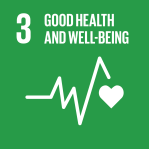
3.1 Average health care expenditure per employee
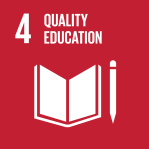
4.1 Average number of training hours per employee
4.2 Number of pupils and students covered by the company's activities supporting the education process in relation to the number of employees
4.3 Percentage of employees trained in sustainable development
4.4 Percentage of employees involved in sustainable development initiatives
4.5 Number of people educated about sustainable development in relation to the number of employees
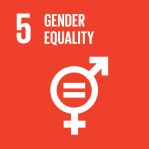
5.1 Percentage of women in managerial positions
5.2 Women to men remuneration ratio
5.3 Difference in admissions of applicants in recruitment processes of women compared to men
5.4 Percentage of employees trained in countering mobbing, sexual harassment, violence or discrimination
5.5 Difference in use of support programs facilitating care of children, senior parents and other dependents by women compared to men
5.6 Difference in use of parental leave by women compared to men
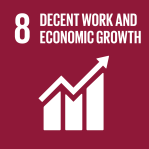
8.1 Value added of the company per employee
8.2 Percentage of employees employed under an employment contract
8.3 Highest to the lowest salary in the company ratio
8.4 Ratio of low-level employees' remuneration to the minimum wage
8.5 Employee turnover
8.6 Percentage of persons with disabilities among employees
8.7 Ratio of number of reported violations of the Code of Ethics to the number of employees
8.8 Percentage of purchases whose suppliers have been verified against CSR criteria
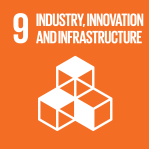
9.1 Expenditure on innovations in relation to revenue
9.2 Percentage of expenditure allocated to sustainable solutions as part of expenditure on innovations
9.3 Number of research projects carried out in cooperation with scientific institutions in the last 3 years
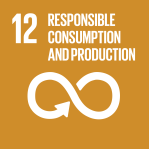
12.1 Material efficiency
12.2 Energy efficiency
12.3 Percentage of energy from renewable sources
12.4 Greenhouse gas emissions
12.5 Water efficiency
12.6 Percentage of recycled or reused waste
12.7 Percentage of raw materials and materials from sustainable sources
NATIONAL PUBLICATIONS
STATISTICS POLAND (coordinator of SDG monitoring in Poland)
Poland on the way to SDGs. Report 2025
Since 2020, Statistics Poland has been publishing digital SDG Reports summing up Poland’s progress towards the 2030 Agenda’s goals. The publications are released on an annual basis, and their thematic scope covers selected aspects of sustainable development.
The latest edition of the digital SDG Report titled “Poland on way to SDGs” summarizes ten years of Poland’s efforts toward achieving the SDGs and answers the questions, among others:
• Has the quality of life of Poland’s residents improved?
• How has the Polish economy developed?
• What changes have occurred in the natural environment?
• How do Poland’s achievements compare with those of the European Union?
SDG in numbers. 10 years of the 2030 Agenda in Poland
In September 2025, it will be 10 years since the UN member states adopted the 2030 Agenda, setting global directions for sustainable development.
On this occasion, Statistics Poland, as the coordinator of the SDG monitoring process in Poland, has prepared the brochure ‘SDG in numbers. 10 years of the 2030 Agenda in Poland’. It presents Poland’s progress toward the Sustainable Development Goals in a clear and visual way, highlighting key changes over the past decade and identifying areas that need urgent attention, based on selected indicators tracking national priorities related to the SDGs.
The publication, primarily intended for domestic audience, is available only in Polish.
Polish SDG statistics in a nutshell
In July 2O23, halfway through the 2030 Agenda, Poland presents for the second time its progress towards the Sustainable Development Goals (SDGs) within the Voluntary National Review (VNR) at the UN High-Level Political Forum on Sustainable Development.
On this occasion, Statistics Poland, as a coordinator of SDG monitoring in Poland, prepared a brochure entitled Polish SDG Statistics in a nutshell, presenting Poland’s progress towards SDGs in a graphical form. The publication presents selected indicators from the set of measures monitoring Poland’s national sustainable development priorities.
A picture of Poland. Statistics for SDGs
In 2015, Poland became one of 193 countries that signed the UN Resolution on the 2030 Agenda for Sustainable Development. In July 2018, Poland, for the first time, presented its progress towards the Sustainable Development Goals (SDGs) under the Voluntary National Review (VNR) at the UN High Level Political Forum. On this occasion, Statistics Poland, as the coordinator of SDG monitoring in Poland, prepared a publication A picture of Poland. Statistics for SDGs, with an aim to familiarize foreign readers with our country and its role in achieving the 2030 Agenda's goals.
The content of the publication was inspired by the development priorities for Poland, indicated in the document Implementation of Sustainable Development Goals in Poland. Report 2018, prepared for the VNR by the Ministry of Economic Development and Technology.
The brochure, being dedicated mainly to foreign readers, is available in English.
On the path to sustainable development
The publication was prepared on the occasion of setting out the Sustainable Development Goals by the UN, included in the 2030 Agenda. It is addressed to everyone who wants to learn and understand what an idea of sustainable development is about and what connects it with the official statistics.
The publication is available only in Polish.
MINISTRY OF ECONOMIC DEVELOPMENT AND TECHNOLOGY (coordinator of SDG implementation in Poland)
Monitoring of the implementation of the Sustainable Development Goals in Poland
The publication by the Ministry of Economic Development and Technology presents the selected activities for 2030 Agenda in Poland performed by Polish government, local government, universities and other stakeholders. It describes important national and regional strategic projects and operational programs, the implementation of which may contribute to bringing the country closer to achieving progress in all dimensions of sustainable development. The publication also takes into account the global context, including the consequences of Russia’s aggression against Ukraine and climate challenges. The publication is complemented with information on the monitoring of SDGs in Poland, the EU and in the World as well as selected indicators from the set of measures monitoring Polish priorities from the SDG NRP, presented in graphic form.
The publication is available only in Polish.
The 2030 Agenda in Poland. National priorities – joint actions
The publication by the Ministry of Economic Development and Technology (former Ministry of Entrepreneurship and Technology), released in connection with the 2nd National Forum of the 2030 Agenda Stakeholders, outlines SDG priorities for Poland as well as progress in their implementation. It presents selected governmental actions and strategic projects within individual SDGs as well as examples of the 2030 Agenda stakeholders’ engagement, including Statistics Poland as an initiator of the action "Statistics without barriers - because everybody counts" (related to SDG 8. Decent work and economic growth). The priorities and relevant actions are accompanied by charts presenting indicators from the national set of SDG indicators developed by Statistics Poland (national coordinator of SDG monitoring) in cooperation with the Ministry of Economic Development and Technology (coordinator of SDG implementation in Poland). The publication may also serve as an inspiration for further actions for sustainable development goals in Poland.
The publication is available only in Polish.
Implementation of the Sustainable Development Goals in Poland. The 2023 National Report.
The report was compiled by the Ministry of Economic Development and Technology for the review of realisation of the Sustainable Development Goals in Poland in New York by the UN High-Level Political Forum in 2023.
The publication indicates Poland’s experiences so far, updated national development priorities and national approach to the realisation of individual SDGs in context of challenges related to the recovery after the COVID-19 pandemic and Russian aggression in Ukraine.
The report is supplemented with a Statistical Annex, prepared by Statistics Poland; it contains a graphic presentation of Poland’s progress in the implementation of the SDGs. It presents the selected indicators (two for each SDG) contained in the set monitoring the national sustainable development priorities.
INTERNATIONAL PUBLICATIONS
UNITED NATIONS (UN)
The Sustainable Development Goals Report
The report reviews progress in the following years of implementation of the 2030 Agenda for Sustainable Development. The 2025 edition details the significant challenges the world is facing in making substantial strides towards achieving the SDGs based on the latest data and estimates. It features areas with setbacks (e.g. ongoing inequalities, hunger, lack of access to water and sanitation, insufficient support for women and persons with disabilities, climate change, debt, rising living costs, and inadequate financing for development efforts) while also showcasing where tangible progress has been made (e.g. a decline in new HIV infections, improved access to energy and the Internet, increased enrollment of children in education, and biodiversity improvement). The 2025 report also highlights where action needs to be accelerated including: energy transition, digitalization, education, and climate protection – as well as the need for stronger multilateralism.
Sustainable Development Report
The Sustainable Development Report (SDR), developed by Sustainable Development Solutions Network (UN SDSN) and the Bertelsmann Stiftung, reviews progress on SDGs made each year by UN Member States. The SDR contains the SDG index and SDG dashboard, tools allowing the assessment of each country’s overall performance on the SDGs and identifying country's strengths and weaknesses in relation to the 17 Goals both with the global trends in this area.
This year’s edition also presents a new index of countries’ support to UN-based multilateralism and highlights eight key messages, including the continued dominance of European countries in the ranking, strong global commitment to the SDGs, the fastest progress in East and South Asia, and the financial challenges faced by many developing countries.
UN ECONOMIC COMMISSION FOR EUROPE (UNECE)
SDG Progress Report in the UNECE Region
The report provides a progress assessment of the 2030 Agenda’s implementation in the UNECE region, based on the data available in the United Nations Global SDG Indicators Database.
The latest edition of the report Sustainable Development in the UNECE Region in 2025: More Data, Persistent Challenges beside assessing the advancement of SDG targets and goals in the UNECE region, also provides stories about the ways in which regional and country-level actions relate to sustainable development outcomes.
The publication is available as a download (PDF) and interactive version.
Road Map on Statistics for Sustainable Development Goals – Second Edition
The Road Map provides guidance on how to organize the process of the 2030 Agenda monitoring in the UNECE region. Its first edition (2017) lays out the foundations and frames for tracking SDGs, whereas the second edition – sums up conclusions and experiences in that area, gained by countries in the UNECE region so far, and presents challenges currently faced by statistical systems:
• data disaggregation and searching for new data sources to provide information on vulnerable and marginalized groups in line with Leave No One Behind principle,
• SDG monitoring tailored to user needs (subnational level, private sector),
• implementation of solutions facilitating monitoring: Application Programming Interface (API) and uniform data transmission format (SDG-SDMX),
• statistical production under pandemic circumstances.
The Road Map was prepared by the Steering Group on Statistics for SDGs, established in February 2016 by the CES Bureau within the UN Economic Commission for Europe. The Group was co-chaired by Poland and Sweden from 2018 to 2025.
Poland’s representatives played an in important part in developing of the Road Map as its editors and authors of two sections in it (Beyond global monitoring and Voluntary National Reviews). The publication also includes examples of Polish initiatives (case studies) i.a. Statistics Poland’s involvement in development of SDG indicators for business (Impact Barometer).
EUROPEAN UNION (EU)
Sustainable development in the European Union Monitoring report on progress towards the SDGs in an EU context 2025 edition
The publication, issued by Eurostat annually since 2017, present progress towards achieving the Sustainable Development Goals by the EU and its member states. The reports consider two periods: the short term, accounting for progress over the past five years, and the long term, looking at the trends over the last 15 years. The analysis presented in the reports is based on a set of about 100 SDG indicators (structured along the 17 SDGs and closely linked to EU policies), available in the Eurostat database.
The 2025 edition of the report presents the EU’s progress in implementing the 2030 Agenda and the Sustainable Development Goals (SDGs), analysing EU actions and their impact across social, economic, environmental, and institutional dimensions. The report also compares the EU’s performance with other major economies and examines the global spillover effects of EU consumption. The publication is accompanied by a communication package, including new visual and interactive tools available on the Eurostat website — notably the latest SDG EU Progress Tracker.
Monitoring report on progress towards the SDGs in an EU context - 2024 edition
Monitoring report on progress towards the SDGs in an EU context - 2023 edition
Monitoring report on progress towards the SDGs in an EU context - 2022 edition
Monitoring report on progress towards the SDGs in an EU context - 2021 edition
Monitoring report on progress towards the SDGs in an EU context - 2020 edition
Monitoring report on progress towards the SDGs in an EU context - 2019 edition
Monitoring report on progress towards the SDGs in an EU context - 2018 edition
Sustainable development in the European Union – Overview of progress towards the SDGs in an EU context
The publication is a simplified version of the publication "Sustainable development in the European Union - Monitoring report on progress towards the SDGs in an EU context". It presents in a concise and graphical way progress towards achieving the Sustainable Development Goals in the EU. The brochure is based on a set of about 100 EU indicators assigned to the 17 Sustainable Development Goals.
Europe Sustainable Development Report
The report is a publication on the progress of the Europe, including European Union, EU Member States and other European countries towards Sustainable Development Goals (SDGs). Report prepared by Sustainable Development Solutions Network (SDSN) and the Institute for European Environmental Policy (IEEP) presents SDG Index and SDG Dashboard that allow the assessment of the overall performance on the 2030 Agenda and its goals in Europe.
The publication also addresses investment challenges, spillover effects in the EU, and the role of the EU in the global financial system and SDG diplomacy. The report emphasizes the need for ambitious actions and international cooperation, especially in the context of the new EU leadership for the period 2024–2029.
ORGANIZATION FOR ECONOMIC CO-OPERATION AND DEVELOPMENT (OECD)
The Short and Winding Road to 2030 - Measuring Distance to the SDG Targets
The publication assesses the distance that OECD countries need to travel to meet SDG targets. It is based on the IAEG Global Indicator List and using data from the UN SDG Database and OECD Databases.
The latest edition of the report The Short and Winding Road to 2030: Measuring Distance to the SDG Targets evaluates the direction and pace of SDG realization in OECD countries, but it goes one step further and deepens the analysis by identifying long-term trends, considering also how these trends may be impacted by the COVID-19 pandemic. The publication is supplemented with country profiles including information on country strengths and weaknesses in terms of SDGs as well as the distance they need to travel to meet the SDG targets.
A Territorial Approach to the Sustainable Development Goals. Synthesis report
The publication argues that cities and regions play a critical role in the achievement of sustainable development goals. It estimates that at least 105 of the 169 SDG targets will not be reached without proper engagement of OECD cities and regions. With reference to SDGs, the report analyzes, in parallel, the impact of global megatrends (demographic change, climate change, digitalization and so-called "geography of discontent") manifesting in different forms depending on local and regional circumstances. The main body of the report includes an OECD localized indicator framework that measures the distance towards the SDGs for cities and regions in OECD countries.
Towards Green Growth? Tracking Progress
The Green Growth Strategy adopted in 2011 by OECD provides guidance on how to achieve economic growth and development, while preventing costly environmental damage and inefficient resource use. The report Towards Green Growth? Tracking Progress attempts to evaluate progress that countries have made since the adoption of the Strategy in aligning economic and environmental priorities.
How’s Life? 2024. Well-being and resilience in times of crisis
The publication How's Life? describes the latest data on people’s well-being, the state of the environment, and prospects for future generations in OECD and partner countries. The publication examines how successive crises – the pandemic, the cost-of-living surge, and climate change – have affected quality of life, highlighting growing material and social inequalities, challenges related to mental health, social trust, and societal resilience. Based on over 80 well-being indicators, the report serves as a tool to support policy-making aimed at more inclusive and sustainable development.
SDG4FUN
Statistical data don’t need to be boring or cause a headache. Wanna get to know them through fun? Explore SDG applications and you’ll find out the relevance of statistics to sustainable development.
Wanna learn about young people neither in education nor in employment? Play the games and movies made across the world by teams that took part in the UNECE hackathon Telling stories with SDG data in 2017. Among the hackathon participants, there were two teams representing Statistics Poland, including the winning team Polish Statistical Crew from the head office of Statistics Poland and the Statistical Office in Gdańsk.
But that’s not all! Wanna see that each and everyone, including the laziest person in the world, can act for the SDGs? Read the UN guide that you can use at home, school or workplace.
Good luck!
Fairy Tales for a Fairer World
Thanks to its use of well-known fairy tale motifs from different parts of the world, this book appeals most to little readers. Its individual tales refer to current challenges and 17 SDGs, featuring both heroes and villains, e.g. Little Red Riding Hood or Baba Yaga. Fairy tales... have been created by the Perception Change Project under the Director General of the United Nations Office in Geneva. In line with the intention of its authors, the book is an invitation to bridging the generation gap in a discussion on our planet.
SDGs & me
A new digital publication by Eurostat on the 2030 Agenda’s goals reaches out to a wide range of readers. Its intuitive nature and attractive layout encourage each and everyone to take a glance at the SDGs from the statistical point of view. SDGs & me presents progress towards 17 goals in the EU and its member countries by means of interactive visualizations. In order to assess progress in achieving the global goals, metrics from Eurostat’s SDG indicator set were used. The publication enables comparison of progress towards the SDGs between the countries and against the EU. It also makes it possible to guess trends for indicator values before their presentation on the chart.



